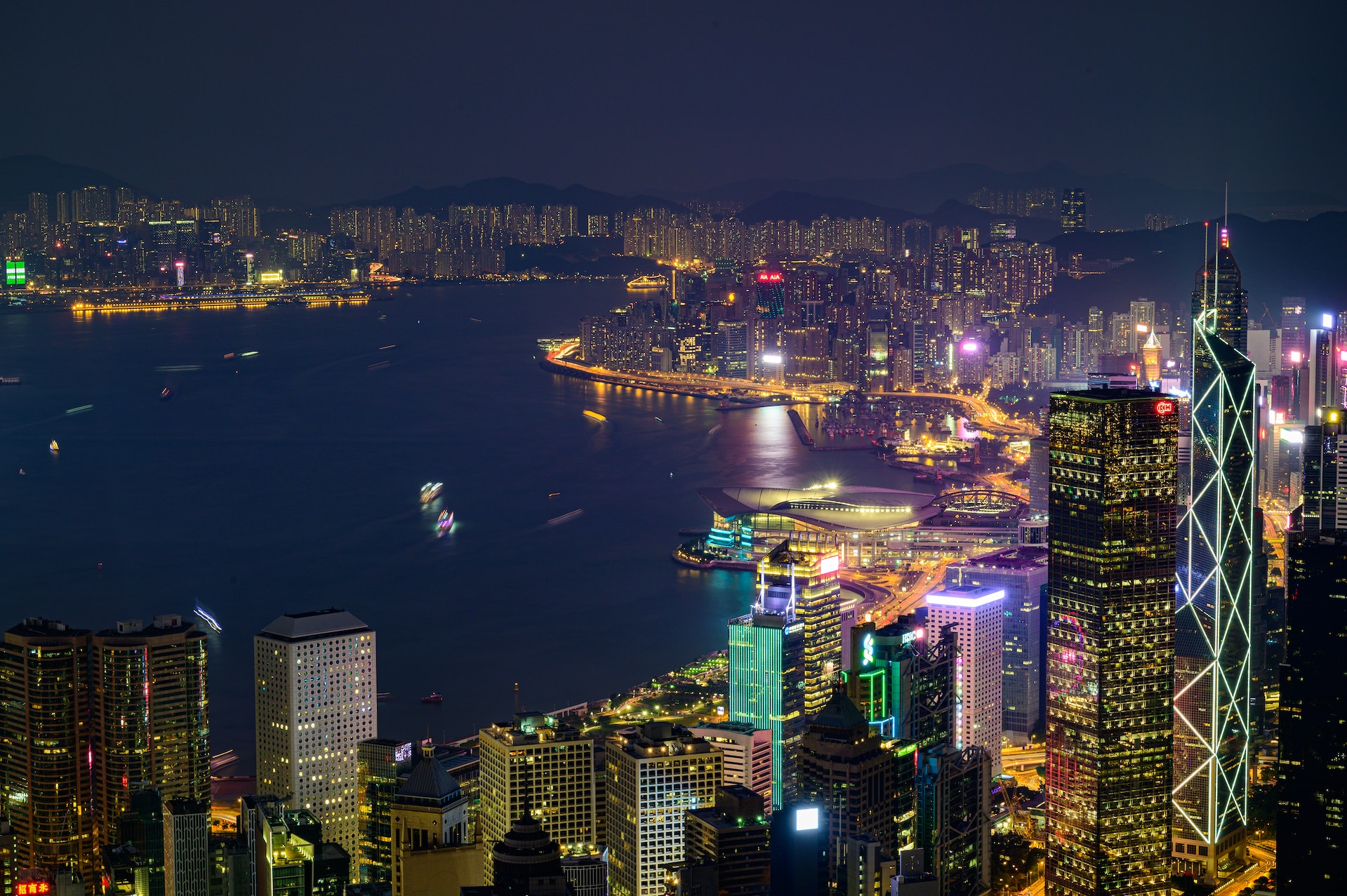Hong Kong Economy - Why It's The Best Digital Hub In Asia
Hong Kong economyis becoming a center for technology companies because of its strong infrastructure support for the industry, its strong protection of intellectual property, and its strong research and development capabilities.
The things the Hong Kong government has done have helped create a good environment for technology companies and increased their ability to come up with new ideas.
Overview Of The Hong Kong Economy
Businesses in Hong Kong are having a difficult time. The protracted US-China trade dispute and the ongoing public demonstrations have caused Hong Kong to enter a technical recession.
The city's GDP shrank 3.2% in the third quarter compared to the second quarter. Start-ups looking for prospects in Hong Kong now face a more difficult environment due to the declining business environment.
Industrial Growth
Hong Kong is a vital economic hub and Asia's technology market, amid a burgeoning local research cluster. The Global Innovation Index 2021 says that its innovation and technology (I&T) sector, along with those of Shenzhen and Guangzhou, is the second-best science and technology cluster in the world.
Hong Kong is poised to further capitalize on its advantages in R&D capabilities, technological infrastructure, the legal system, and intellectual property thanks to opportunities presented by the Guangdong-Hong Kong-MacaoGreater Bay Area expansion.
The area wants to be the leader in the I&T sector and a business hub for companies that want to do business in Asia, especially China, or for forward-thinking mainland companies that want to grow internationally.
In recent years, greater funding and investments in the required infrastructure have helped Hong Kong's startup ecosystem take off. A survey by InvestHK found that the number of start-ups in Hong Kong kept going up (+12% from the year before) and that they employed more than 13,000 people.
Information and communication technologies (ICT), software as a service (SaaS), the Internet of Things (IoT), data analytics, biotech, artificial intelligence (AI), robotics, virtual reality (VR), augmented reality (AR), and new materials are among the major study areas of Hong Kong start-ups.
Fintech (financial technology), smart cities and homes, healthcare, and big data applications are some of the most well-liked fields in termsof applications.
Corporate participation in incubator and accelerator programs is increasing. Universities, Cyberport, and the Hong Kong Science Park are all launching new efforts to support startups.
A number of important investment rounds have been held for start-up companies, especially those with "unicorn" status. It is hoped that the technology industry in Hong Kong will soon cross a threshold and enter a phase of rapid expansion.
Capabilities In R&D
In I&T, human capital is essential. Particularly in the fields of science and engineering, universities in Hong Kong hold respectable rankings in the QS University Ranking and the Times Higher Education Ranking, and they have significantly contributed to the development of Hong Kong's I&T capability according to the research center Stationzilla which covers the latest science news.
Universities have noticed an increase in both internal R&D spending and the number of R&D employees. A growing percentage of this research has been effectively translated into marketable goods, industrial research partnerships, or other ways to benefit society and the economy.
Infrastructure Technology
In the Global Innovation Index 2021, Hong Kong placed sixth out of 132 economies in terms of infrastructure. In line with the plan for I&T development that was released in 1998, the government has invested in important infrastructure.
For example, it started the Innovation and Technology Fund (ITF) with an initial investment of HK$5 billion, set up the Hong Kong Applied Science and Technology Research Institute (ASTRI), which is funded by the government, and built the Hong Kong Science Park, Cyberport, and five Research and Development Centers.
Science Parks In Hong Kong
More than 1,100 technological enterprises and over 11,000 R&D professionals are based in the Hong Kong Science Park. In order to support the R&D efforts of Park enterprises, the Part offers cutting-edge equipment and software platforms. Its goal is to establish a world-class I&T ecosystem in Hong Kong.
The Park also acts as a proving ground and encourages business development, investor matching, professional interchange, and commercialization.
Incu-App
Financial support for R&D costs up to HK$860,000
A two-year initiative called Incu-Appwas created to assist startups in creating innovative products using current technologies.
HKSTP gives you access to industry knowledge in content development, application platforms, and market support value chains through its relationships with Hong Kong's top businesses. It does this by assigning you a designated account manager who can give you expert advice.
Incu-Tech
Grants of up to HK$1.29 million
A three-year initiative called Incu-Tech is designed to assist deep-tech research-focused technological start-ups in creating original solutions. Here, you can find investors, strategic partners, mentors, and your account manager, who will give you expert advice.
Incu-Bio
HK$6 million in financial assistance
Incu-Bio, a four-year initiative run by the Biomedical Technology Cluster, aids in the growth of biomedical technology start-ups in Hong Kong. To come up with the best business strategy, you can talk to funding and regulatory stakeholders.
Financial Guidelines In Hong Kong
A well-developed financial industry, low tax rates, free capital flow, and a reliable judicial system are just a few of the traits that define Hong Kong's economy. After London and New York, the city is frequently regarded as one of the most significant worldwide financial centers. Most of the world's biggest banks have their regional headquarters in this city.
Hong Kong's economy is based on four main industries: financial services, tourism, trade, logistics, and professional and producer services.
Hong Kong's proximity to the second-largest market in the world and the world's economic center gives it a substantial edge. It provides quick access to the huge and well-established supply chains of the nation for purchasing and sourcing offices situated in Hong Kong.
A common approach for businesses with suppliers or workplaces in South China is to have employees in Hong Kong and across the border.
Hong Kong has, moreover, consistently shown that it is among the most robust financial hubs in the world. In the past, it handled the severe acute respiratory syndrome (SARS) outbreak as well as the Asian and global financial crises.
Hong Kong's Social Factors
Professionals with expertise and a sense of initiative in Hong Kongare familiar with the commercial traditions of the rapidly expanding Mainland cities. Most people in the city speak Cantonese, but most business professionals also speak Mandarin, which is the official language of Mainland China.
In Hong Kong, there are 22 institutions of higher learning that award degrees. Quacquarelli Symonds (QS) has currently ranked four universities in Hong Kong in the top 100 universities worldwide, demonstrating the superior caliber of our educational system.
Hong Kong presents appealing prospects for professionals around the world because of its vibrant, cosmopolitan lifestyle, lax immigration laws, and various options for career advancement.
A number of admissions schemes have been set up to help Hong Kong's professional and financial growth as a diverse, high-value-added economy that attracts highly trained workers.
People Also Ask
How Is Hong Kong's Economy?
Hong Kong's economy is a highly advanced free-market economy. Low taxes, nearly free port trade, and a firmly developed global financial sector are its defining characteristics.
Is Hong Kong A Rich Economy?
As a result, Hong Kong is currently rated 39th among the major economies. Hong Kong is ranked 13th on the list of the richest nations when this is computed per person and purchasing power parity is taken into account. Hong Kong saw inflation in 2021 of roughly 1.57%.
How Did Hong Kong Get So Rich?
It is not surprising that the majority of the city's wealthiest have built their fortunes in real estate given that Hong Kong is the most expensive real estate market in the world. With an estimated net worth of $28 billion, property mogul Li Ka-shing is said to be the richest person in the city.
Conclusion
Hong Kong economy offers a sizable advantage for firms looking to expand their market share in mainland China. Through the Mainland and Hong Kong Closer Economic Partnership Agreement, businesspeople can access Mainland China and take advantage of the market-based policies of one of the most open economies in the world.


